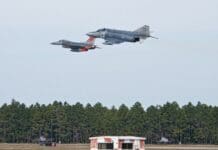This post is also available in:
 עברית (Hebrew)
עברית (Hebrew)
The European Space Agency (ESA) announced that it will use artificial intelligence to reduce space garbage and protect infrastructure from space-based threats like space weather, naturally occurring space-born objects like meteoroids, and artificial space debris, as well as from cyberattacks.
One of the most pressing issues is artificial space debris (defunct satellites, rocket stages, and remnants of past space missions), which poses a grave danger to operational spacecraft, as collisions can lead to serious damage and the generation of more debris, worsening the problem.
According to Cybernews, space agencies worldwide are addressing these challenges by engaging in monitoring and mitigation efforts. For example, the ESA’s Space Safety Program is meant to mitigate and prevent the effects of hazards from space and ensure the safety and sustainability of space activities and the infrastructure on the surface.
The Space Safety Program reportedly intends to use artificial intelligence to improve the sustainability, security, and resilience of the agency’s space missions and operations. Mariella Spada, Head of Ground Systems Engineering and Innovation at the European Space Agency stated: “ESA has embraced Artificial Intelligence as a strategic technology. It unlocks efficiency gains through AI-enabled automation and is also of key importance to future cybersecurity developments by enabling intelligent detection of threats to space systems.”
As the number of smaller, more agile spacecraft in use around the Earth grows significantly, these craft are becoming more and more integrated into our terrestrial infrastructure, according to the Head of Ground System Segment and Cybersecurity Engineering at ESA Dr. Daniel Fischer.
Moreover, space infrastructure needs protection from cybersecurity threats as much as it needs security from space-based hazards, with Fischer claiming that most cyberattacks on space infrastructure target ground-based systems and assets. Fischer believes that ESA’s deployment of a Cybersecurity Operations Centre will provide the capability to detect cybersecurity attacks more efficiently.
“ESA is pushing development in the area of zero-trust ground segments, secure space-link communications, space cybersecurity engineering framework, as well as key developments in adjacent technology fields such as Artificial Intelligence and Digitalization,” he concludes.


























